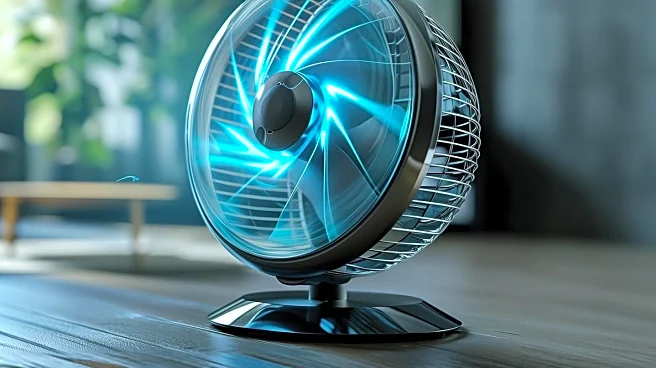What is the story about?
What's Happening?
As temperatures rise, researchers are cautioning against the use of electric fans during heat waves, particularly when the outside air temperature matches or exceeds body temperature. Studies indicate that fans can exacerbate heat exposure by acting like convection ovens, pushing warm air over the skin and increasing body heat. Dr. Robert Meade from Harvard's T.H. Chan School of Public Health found that fans in high heat can be detrimental, especially for individuals with heart disease, as they increase cardiovascular strain. However, fans can be beneficial at night when outside temperatures drop, aiding in cooling homes.
Why It's Important?
Understanding the limitations of electric fans during extreme heat is crucial for public health, especially as heat waves become more frequent due to climate change. This information is vital for vulnerable populations, such as the elderly and those with pre-existing health conditions, who are at higher risk during heat waves. The research highlights the need for effective cooling strategies and public awareness to prevent heat-related illnesses and fatalities.
What's Next?
Public health advisories may need to incorporate these findings to guide safe cooling practices during heat waves. Further research could explore alternative cooling methods that are both effective and accessible. Community programs might focus on educating residents about safe heat management techniques, including the use of fans in conjunction with other cooling methods like water evaporation.















